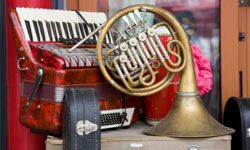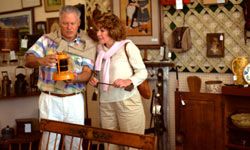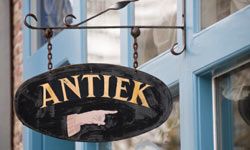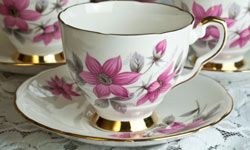Whether you're on a mission for something so specific it might take you years to find it, or you have that moment of shopping serendipity in an unexpected place, antiquing can be both a pursuit and a surprise. And for someone who loves antiquing, nothing is more satisfying than finding a $2 curio and a priceless piece of furniture in the same place on the same day. Of course, knowing how to ask for what you like and paying the price you want to pay can make it even better. We've narrowed down the 10 things you should know about antiquing so you can end up getting those priceless treasures you want -- every time.
Advertisement




